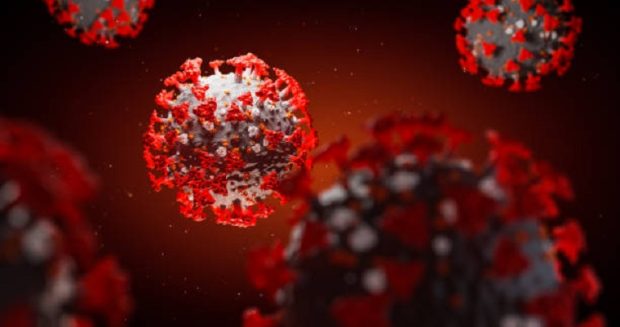
Up to 11 pc of Covid cases that needed hospitalisations had lung scarring: US study
PTI, Dec 3, 2022, 1:17 PM IST

Credit: iStock photo
Up to 11 per cent of Covid cases that needed hospitalisation had lung scarring which may be irreversible and could get worse over time, according to a study conducted in the United States.
The study, published in the American Journal of Respiratory and Critical Care Medicine, sought to determine the percentage of COVID-19 patients, with various degrees of severity, discharged from hospital who had a type of fibrotic lung damage, known as interstitial lung disease, that requires follow-up care.
Interstitial lung disease refers to a broad group of diseases that are characterized by lung scarring, including idiopathic lung fibrosis. This scarring makes it difficult to breathe and get oxygen into the bloodstream. Lung damage caused by this may be irreversible and get worse over time.
“We estimated that up to 11 per cent of hospitalised Covid patients had fibrotic patterning after recovery from the acute illness,” said corresponding author Iain Stewart, an advanced research fellow (Rayne Foundation) at the Margaret Turner Warwick Centre for Fibrosing Lung Disease, National Heart and Lung Institute, Imperial College, London.
“Whilst many people experience prolonged breathlessness, the major implication of these findings is that a substantial number of people discharged from a Covid hospitalisation may also have fibrotic abnormalities in their lungs. These results should help concentrate efforts to closely follow at-risk patients. This follow-up should include repeat radiological imaging and lung function testing,” said Stewart.
For some people, these fibrotic patterns may be stable or get resolved. For others, they may lead to long-term lung fibrosis progression, worse quality of life and decreased life expectancy. Early detection of progression is essential to improve outcomes, he said.
The study authors examined evidence of abnormal lung patterns on follow-up CT scans from COVID-19 patients discharged from the hospital which could be suggestive of interstitial lung disease.
The characteristics of the 209 study participants who had CT scans were applied to a wider post-hospitalization cohort of almost 3,500 people without a CT to stratify the risk of residual lung abnormalities. Interim study participants were discharged from the hospital by the end of March 2021, while interim data were collected until October 2021, restricting the analysis to 240 days after discharge.
Researchers identified patients with thoracic CTs from the PHOSP-COVID database.
The Post-Hospitalisation COVID-19 Research Study (PHOSP-COVID) is a consortium of leading researchers and clinicians from across the UK working together to understand and improve long-term health outcomes for patients who have been in hospital with confirmed or suspected COVID-19.
The primary outcome that the scientists sought to determine was the prevalence of residual lung abnormalities in Covid patients discharged from hospitals. Analyses were performed to determine participants’ risk factors for residual lung abnormalities in those who did not receive a CT scan. These risks were used to estimate prevalence in the overall population hospitalized by the end of March 2021.
According to the authors, the study offered the largest assessment of the prevalence of residual lung abnormalities in hospitalized individuals to date and is consistent with findings from several smaller studies that demonstrate persistent radiological patterns and impaired gas transfer during the extended follow-up of patients with COVID-19.
At the time of this interim analysis, it is not possible to determine whether the observed residual lung abnormalities represent early interstitial lung disease with potential for progression, or whether they reflect pneumonitis that may be stable or resolve over time. Pneumonitis refers to inflammation in the lungs, the study said.
“The next phase of the study is a primary analysis, which will be performed at 12 months. At that time, we will also use linked electronic health records of hospital admissions and mortality data to support our analyses. We expect to have the final results in early 2023,” it said.
Udayavani is now on Telegram. Click here to join our channel and stay updated with the latest news.
Top News

Related Articles More

Study shows how brain chemicals control eating, could help develop improved obesity drugs

‘Faster walkers’ had significantly lower risk of diabetes, hypertension: Study

World Meditation Day 2024: Celebrating inner peace and well-being

Virus causing gut infections could play role in development of Alzheimer’s: Study

Air pollution linked to more hospitalisations for all causes, mental illness too, study finds
MUST WATCH
Latest Additions

BJP accuses Kejriwal of deception over ‘Sanjeevani’ and ‘Mahila Samman’ schemes

Theatre stampede case: Police grill actor Allu Arjun for over 3 hrs; ask about sequence of events

Karnataka CM Siddaramaiah wishes Shivarajkumar speedy recovery

HC asks Centre’s response on plea of Yuvraj Singh’s NGO seeking FCRA renewal

Rafi a musical genius, his cultural influence transcends generations: PM Modi
Thanks for visiting Udayavani
You seem to have an Ad Blocker on.
To continue reading, please turn it off or whitelist Udayavani.

















